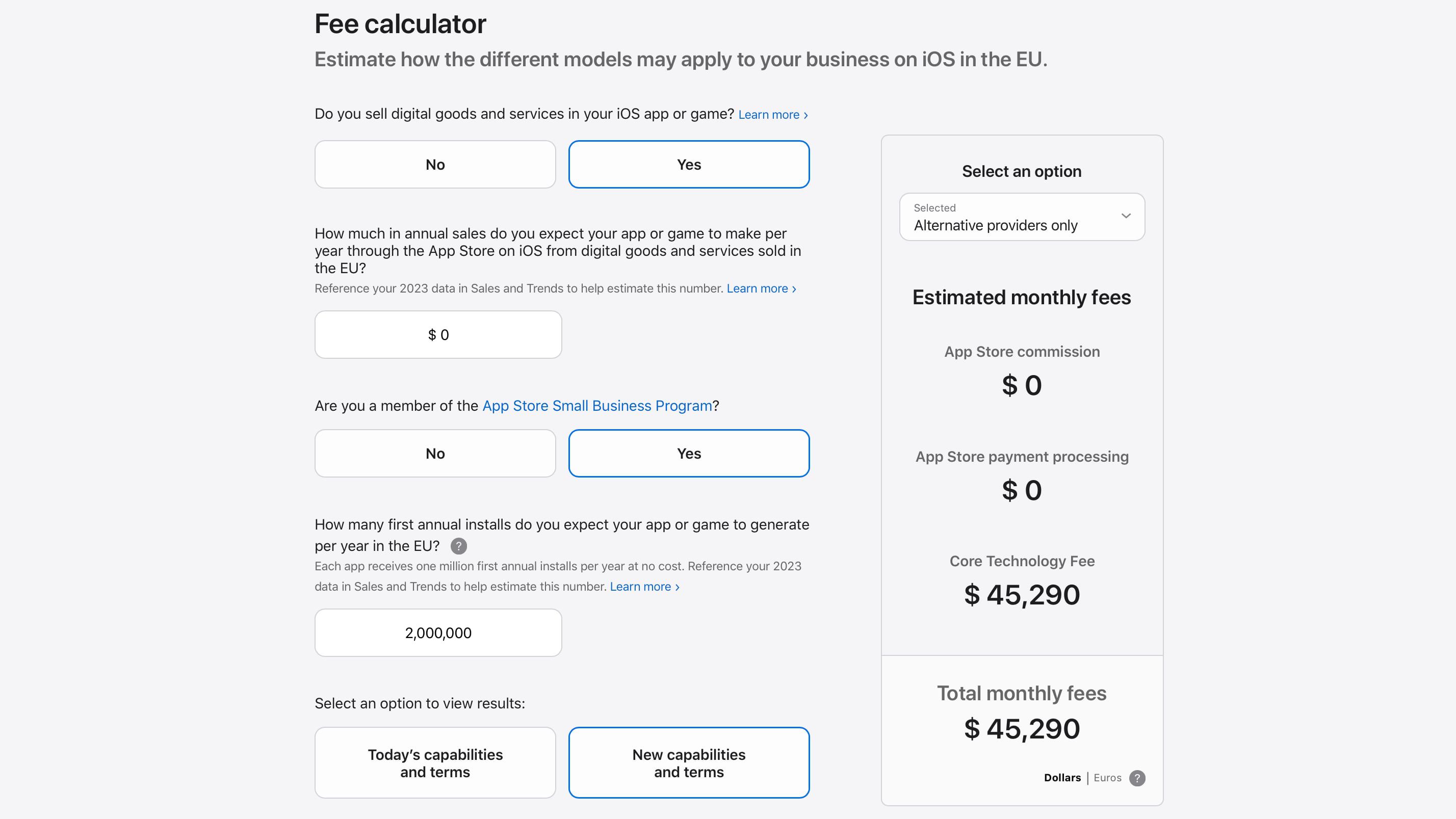I think you have misconstrued the true purpose of CTF. The only reason CTF exists is to ensure free apps do not go to Alt Stores. Imagine Netflix, Facebook, etc, go to alternate stores? Imagine Facebook opens its own store. It will pull its free apps from Appstore and put it on Altstore, if Apple allows free apps to be exempt from CTF. That is the main and only reason for CTF. That is why Apple wants CTF and hence the EU does not want it.
Except those are not "free" per Apple's definition of free:
free Applications without monetization or services related to revenue of any kind (e.g., advertising, sales, or marketing of digital or physical goods or services)
since they monetize their apps. I would say the CTF exists to protect Apple's revenue stream from the big developers if they would go on a competing App Store or roll their own.
At any rate, it will be interesting to see this whole thing play out. It is interesting tehy mentioned steering violations but are just investigating the CTF. Who knows what the end state will be?
The reason that I have given above shows the problem with CTF. Any rule that Apple brings for the Altstore, the EU must make Apple apply to apps in its store also. That is the only way to force Apple to bring fair laws. Everything else will result in such malicious compliance.
As I pointed out they could easily charge the CTF but give credit for any fees paid to Apple on the APP Store, or outside of the App Store, and make truly free apps not subject to any CTF. They could also cap the CTF to the lesser of the percentage commission or the CTF, much like EPIC does for their fees.
Alternatively, they could change the fee structure on the App Store so that any company with annual revenues above X, in order to be on the App Store, have to pay hosting, per d/l or other fees and Apple doesn't take a cut of sales. Then it becomes a question of how lucrative is the App Store for us and can we afford to lose the revenue it generates if our customers do not follow us and new iPhone users have to find us on an alternative store.
Ultimately, just implement sideloading much like it is on the Mac and let developers decide what model to use. I suspect some will bolt just to stick it the man, but many, even the big ones, would stick with the App Store simply because that is where the lucrative user base will be and alternative stores won't have the same type of user base.
In the end, it's all about what is most profitable.
I also doubt most app stores will be cheaper in the long run for most developers. I suspect many will simply
Yeah. Best to make Apple sell the subsidiary to a third-party.
The problem is Apple would still be free to charge for access to its services but be free of the App Store gatekeeper status; which would likely give them a lot more leeway in what they can charge.
In addition, any buyer is likely to look at who makes them money and how much and kill off all the ones that cost money or don't make enough money to increase their margin. If their annual revenue doesn't meet the gatekeeper requirements, they are now just another store and free of gatekeeper status.
What happens when alt stores don't want to host free apps? Will the EU and member governments now be willing to pay for apps that are critical to operations but are no longer free?
Or when a paid app suddenly loses its alt store slot that shuts down and no longer can update it or users can no longer d/l it even though they paid for it? That will be a real challenge for alternative stores - how do we stay in business long term? Will there be enough people using our store to make a profit or will they get one or two apps or some free one and not generate much revenue?
Then again, there is the question of will Apple open another App Store or will the EU forbid it?


